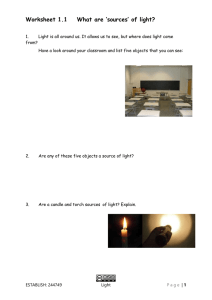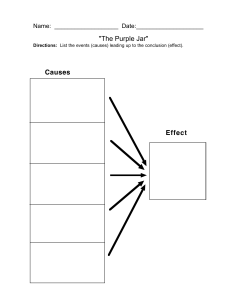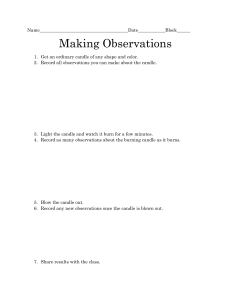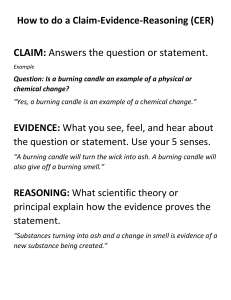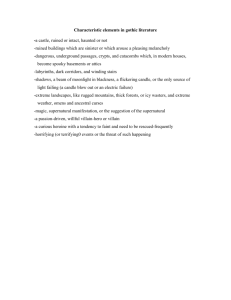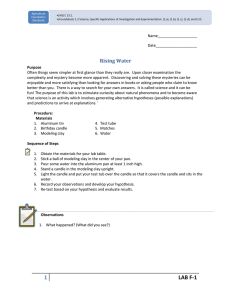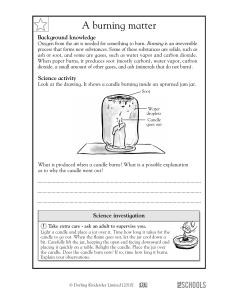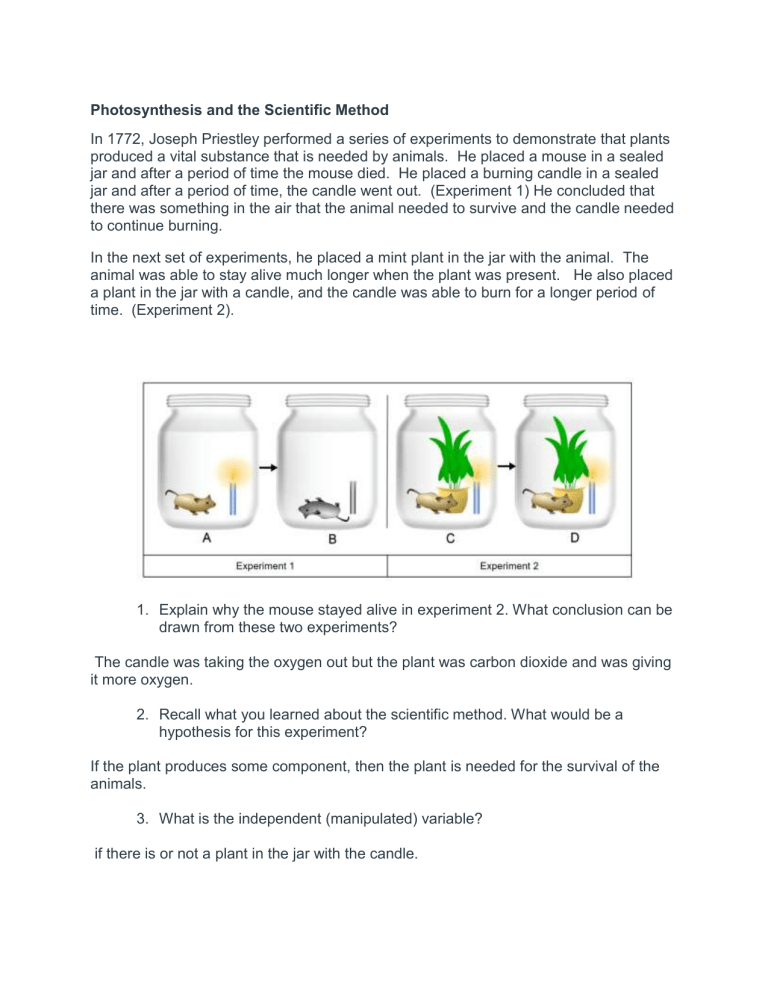
Photosynthesis and the Scientific Method In 1772, Joseph Priestley performed a series of experiments to demonstrate that plants produced a vital substance that is needed by animals. He placed a mouse in a sealed jar and after a period of time the mouse died. He placed a burning candle in a sealed jar and after a period of time, the candle went out. (Experiment 1) He concluded that there was something in the air that the animal needed to survive and the candle needed to continue burning. In the next set of experiments, he placed a mint plant in the jar with the animal. The animal was able to stay alive much longer when the plant was present. He also placed a plant in the jar with a candle, and the candle was able to burn for a longer period of time. (Experiment 2). 1. Explain why the mouse stayed alive in experiment 2. What conclusion can be drawn from these two experiments? The candle was taking the oxygen out but the plant was carbon dioxide and was giving it more oxygen. 2. Recall what you learned about the scientific method. What would be a hypothesis for this experiment? If the plant produces some component, then the plant is needed for the survival of the animals. 3. What is the independent (manipulated) variable? if there is or not a plant in the jar with the candle. 4. What is the dependent (responding) variable? It depends on how long the candle burns 5. What is the “vital substance” in the air that Priestly was studying? Use “modern” biology to explain how you know this (information from today's lesson). The oxygen was the vital substance because the mouse needs it to survive
